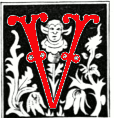
ictorian literature is being fundamentally reimagined. What was once read through the lens of industrial realism, imperial narration, and bourgeois decorum is now being reassessed through new critical modes such as Animal Studies, Environmental Humanities, Food history, Ecocriticism, and Postcolonial re-readings. The aim of Rewriting the Victorian Imagination: Fables, Flesh, and Fluidity in Nineteenth-Century Literature is to consolidate and advance these reconfigurations by drawing together new research that unsettles the stable categories through which the “Victorian” has traditionally been understood.
This volume asks: how did nineteenth-century literature narrate life that exceeded the boundaries of the human, the national, or the rational? How did it speak to fables and beasts, rituals and recipes, tides and translations? What happens when we stop treating Victorian literature as a closed British canon and begin to see it as a set of global, multispecies, transhistorical entanglements? This volume will primarily focus on three intersecting motifs—fables, flesh, and fluidity—to invite interventions that challenge rigid disciplinary boundaries and thematic hierarchies. Fables signal not just allegory or childhood literature, but alternative ontologies: animal centred stories, mythic retellings, and ethical provocations that complicate human exceptionalism. “Flesh” opens up concerns about embodiment, gender, sexuality, food, and class: what Carolyn Steedman calls “the past in the body.” “Fluidity” gestures toward both aquatic metaphors and epistemic looseness toward oceanic, emotional, and ecological narratives that resist fixed historical linearity.
We are particularly focusing on these five themes:
- 1. Reinterpret the role of animals, mythical creatures, or nonhuman beings in Victorian texts and especially through the lenses of posthumanism, animal studies, or ecological ethics.
- 2. Examine the invocation of medieval, Gothic, or mythical pasts in shaping Victorian modernity.
- 3. Explore everyday domestic practices (e.g., eating, cleaning, teaching, mourning) and their intersections with gender, class, and colonial control.
- 4. Analyse the representation of water—rivers, oceans, rain, tears—as affective and material agents within Victorian literary texts.
- 5. Engage with Indian (or other colonial) writings composed during Queen Victoria’s reign that interacted with, resisted, or reimagined imperial literary culture.
Basic Details: Victorian Sunday is a podcast series hosted by Victorian Vanguard, an online forum with over 16,000 members. The series began on 20 April 2025 and will continue every Sunday until 30 November 2025. Each Sunday, selected participants will engage in informal, podcast-style discussions based on their submitted abstracts.
How to Participate:
- You may choose your preferred Sunday using the form provided, or opt for the “Upcoming Weeks” option if you are flexible with dates. If your abstract is selected, we will assign you a suitable slot.
- To be considered, please submit your abstract along with a few basic details through the Google Form linked here
- We will notify you via email regarding the selection of your abstract.
Publication Opportunity: From the pool of podcast discussions, we will select 12–14 outstanding papers for publication in a forthcoming edited volume with Peter Lang titled ‘Rewriting the Victorian Imagination: Fables, Flesh, and Fluidity in Nineteenth-Century Literature’ . If selected, you will be invited to submit a full-length research paper (between 3,000–5,000 words). Final papers must follow the Chicago Manual of Style (CMS), 17th Edition.
The final deadline for abstract submission is 15 July, 2025. The notification of acceptance will be 20 July, 2025, and the full manuscript submission is 30 September, 2025. The tentative publication date is August 2026.
The editors are Dr. Saswati Halder, Professor and Head Department of English, Jadavpur university. Ritam Dutta, Doctoral Research Scholar Department of English, Jadavpur University. Shaonli Bhowmik, Doctoral Research Scholar, Center for English Studies, Jawaharlal Nehru University. Indranil Banerjee, Doctoral Research Scholar, Department of English, Jadavpur University.
You can find more information here.
For any queries, feel free to email at victorian.vanguard.lecture@gmail.com
Created 10 July 2025
Last modified 26 May 2025